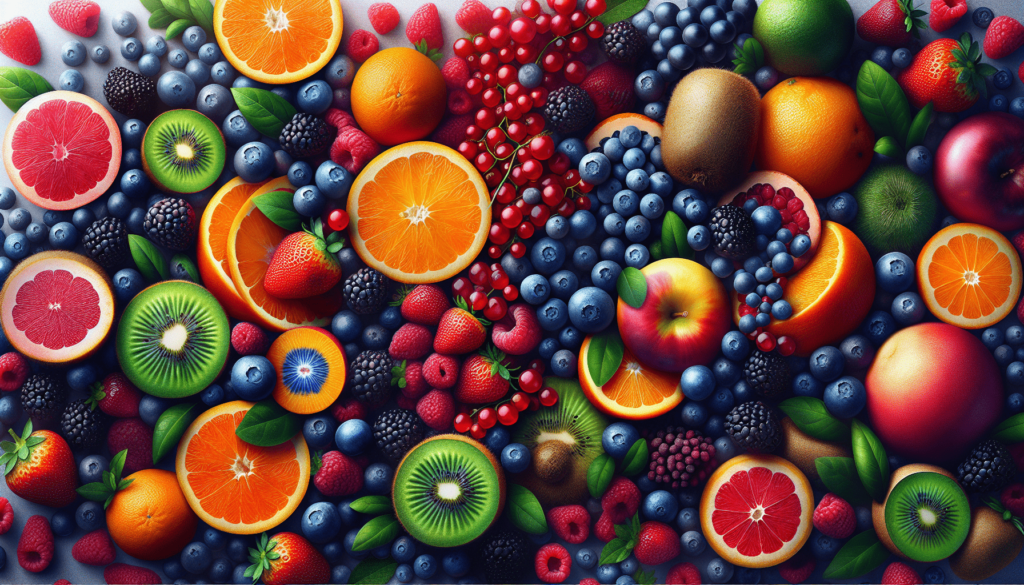Let’s dive into the fascinating world of fruits and their ability to combat harmful bacteria in your gut. Fruits are not only delicious but also packed with essential nutrients and natural compounds that support a healthy gut microbiome. By consuming a variety of fruits rich in fiber, antioxidants, and prebiotics, you can create an environment in your gut that discourages the growth of harmful bacteria and promotes the growth of beneficial ones. Incorporating a colorful array of fruits into your diet can help maintain a balanced and thriving gut microbiota, leading to better overall health and well-being. So next time you reach for a snack, consider adding some fruits to support your gut health! How do fruits combat harmful bacteria in the gut?
Have you ever wondered how eating fruits can help fight off harmful bacteria in your gut? Fruits are packed with essential nutrients and compounds that can support a healthy gut microbiome, promoting overall digestive health. In this article, we will explore how fruits combat harmful bacteria in the gut and why you should include them in your daily diet.

The Gut Microbiome: An Overview
Before we delve into how fruits combat harmful bacteria in the gut, let’s first understand the concept of the gut microbiome. The gut microbiome refers to the trillions of microbes that reside in your gastrointestinal tract, including bacteria, viruses, fungi, and other microorganisms.
Why is a Healthy Gut Microbiome Important?
A healthy gut microbiome plays a vital role in various aspects of health, including digestion, immune function, mental health, and metabolism. When the balance of beneficial and harmful bacteria in the gut is disrupted, it can lead to digestive issues, inflammation, and a weakened immune system.
How Fruits Promote a Healthy Gut Microbiome
Now that we have a basic understanding of the gut microbiome, let’s explore how fruits can promote a healthy balance of beneficial bacteria in the gut.
Rich in Fiber
Fruits are an excellent source of dietary fiber, which is essential for maintaining a healthy gut microbiome. Fiber acts as a prebiotic, providing fuel for beneficial bacteria in the gut to thrive. By eating a variety of fruits rich in fiber, you can support the growth of beneficial bacteria and improve gut health.
Antioxidant Properties
Many fruits are rich in antioxidants, such as vitamin C, vitamin E, and flavonoids, which help combat harmful free radicals in the body. Free radicals can damage the gut lining and disrupt the balance of bacteria in the gut. By consuming antioxidant-rich fruits, you can protect the gut from oxidative stress and promote a healthy gut microbiome.
Anti-inflammatory Effects
Inflammation in the gut can disrupt the balance of bacteria and contribute to digestive issues. Fruits contain anti-inflammatory compounds, such as polyphenols and phytochemicals, that help reduce inflammation and support gut health. By including a variety of fruits in your diet, you can help combat harmful bacteria and promote a healthy gut microbiome.
Top Fruits That Combat Harmful Bacteria in the Gut
Now that we know how fruits can promote a healthy gut microbiome, let’s take a closer look at some top fruits that combat harmful bacteria in the gut.
Blueberries
Blueberries are rich in antioxidants, such as anthocyanins, which have anti-inflammatory and antibacterial properties. Studies have shown that blueberries can help reduce harmful bacteria in the gut and promote the growth of beneficial bacteria, such as Bifidobacteria and Lactobacilli.
Apples
Apples are a good source of dietary fiber, particularly pectin, which acts as a prebiotic to feed beneficial bacteria in the gut. The polyphenols in apples have also been shown to have antibacterial effects against harmful bacteria like Escherichia coli and Salmonella.
Kiwi
Kiwi is packed with vitamin C, fiber, and enzymes that can support digestive health. The actinidin enzyme in kiwi helps break down proteins in the gut, while the fiber promotes the growth of beneficial bacteria. Kiwi also contains prebiotics that feed beneficial bacteria and help combat harmful pathogens in the gut.
Bananas
Bananas are a good source of prebiotic fiber, particularly resistant starch, which feeds beneficial bacteria in the gut. The potassium in bananas can also help regulate fluid balance in the gut and promote healthy digestion. Including bananas in your diet can help support a healthy gut microbiome and combat harmful bacteria.
Incorporating Fruits into Your Diet
Now that we know the top fruits that combat harmful bacteria in the gut, let’s discuss how you can incorporate them into your daily diet.
Fruit Smoothies
Blend a variety of fruits, such as blueberries, apples, kiwi, and bananas, into a delicious smoothie for a quick and convenient way to get your daily dose of gut-friendly fruits. You can also add yogurt or kefir for an extra probiotic boost.
Fruit Salads
Create a colorful fruit salad using a mix of berries, apples, kiwi, and bananas for a refreshing and nutrient-rich snack. Add a drizzle of honey or a sprinkle of chia seeds for added flavor and health benefits.
Fruit Parfaits
Layer Greek yogurt with chopped fruits and granola to create a delicious and nutritious fruit parfait. Choose fruits like blueberries, apples, kiwi, and bananas to support a healthy gut microbiome and combat harmful bacteria.

Conclusion
In conclusion, fruits are an essential part of a healthy diet and play a significant role in combating harmful bacteria in the gut. By including a variety of fruits rich in fiber, antioxidants, and anti-inflammatory compounds, you can support a healthy gut microbiome and promote overall digestive health. So next time you reach for a snack, remember to grab a piece of fruit to nourish your gut and keep harmful bacteria at bay.

